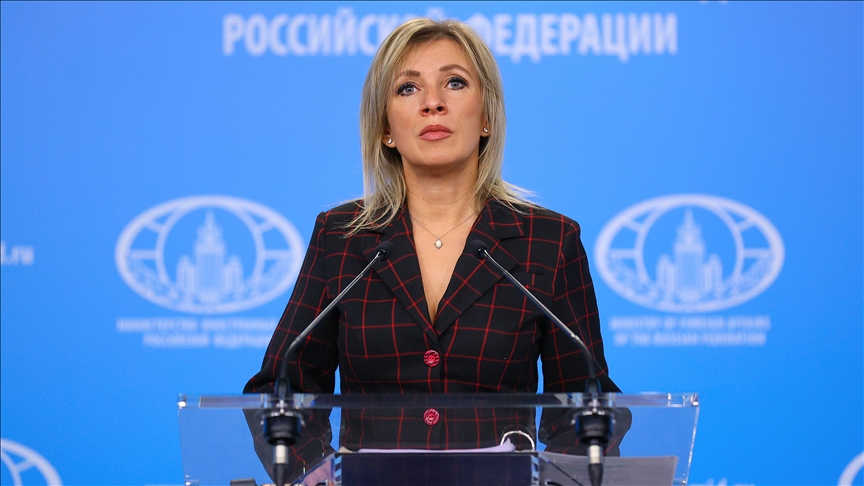Russia calls rare earth deal between US, Ukraine example of 'imperialist colonization'
Maria Zakharova says 'metropolitan centers' continue 'plundering resources from their colonies'

MOSCOW
Russian Foreign Ministry spokeswoman Maria Zakharova on Tuesday called the rare earth metals deal between the US and Ukraine an example of "imperialist colonization."
Responding to an Anadolu question at a press briefing in Moscow, Zakharova highlighted the scarcity of available details regarding the agreement signed last week.
"Even citizens of Ukraine, deputies of the Rada, representatives of relevant departments of the state institution of Ukraine cannot comment. Do you know why? They haven't seen this deal, they haven't read it, they don't know what it says. Of course, this is a unique situation," she said.
Zakharova underscored that providing any commentary at present is premature, as none of the parties have had access to the actual document, amid an abundance of conflicting reports surrounding its content.
"There are messages that raise even more questions. It seems that not one document was signed in Washington, but three. Again, the texts were not published. At the same time, there are some additional closed applications to these texts. How can you comment on something that no one knows except those who, apparently, directly sat at the table and worked with the text?" she questioned.
Zakharova said Ukrainian lawmakers are set to deliberate upon the agreement’s ratification on Thursday, expressing hope that they would be able to familiarize themselves with the contents prior to casting their ballots.
"But there is probably a second part of the answer to your question. All this, if you do not go into details that no one knows, fits into the general trend of the colonization of Ukraine by Western countries," she said.
Zakharova called the situation the "classical imperialist model," where metropolitan centers extracted, exported, and plundered resources from their colonies.
"In my opinion, the states on the planet today can be divided into three groups. The first is precisely those who, according to the principle of the past centuries, want to continue to be colonialists, today they are neocolonizers," she said.
She elaborated by dividing nations into three categories: those actively resisting colonial powers who possess the means to do so, and another category comprising states lacking the capacity or willingness to challenge these exploitative practices.
"There are two subspecies of the third group here. Subgroup A are those who simply do not have the ability to resist, although they would like to. And B is the second subgroup. Those who don't want to resist. Why? Because they got paid for it," she said.
According to her, the current Ukrainian leadership belongs to the second subgroup of the last group, it wants "to be personally given money for squandering natural resources that belong to the entire Ukrainian people, and historically should have belonged to them."
"Everything here is kind of clear and obvious. They have already sold their lands for GMOs and for export. They sell their people, including for organs, and it was (Ukrainian President Volodymyr) Zelenskyy who developed and adopted the relevant legislation in Ukraine. Now the time has come for natural resources," she said.
Anadolu Agency website contains only a portion of the news stories offered to subscribers in the AA News Broadcasting System (HAS), and in summarized form. Please contact us for subscription options.







